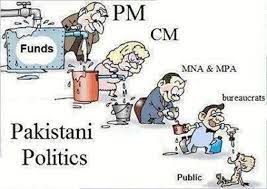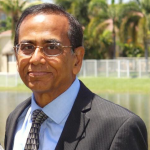
What happens when 220 million people are presented with the shamefaced reality that their institutions are shambolic, their representatives purely self-serving?
Nazarul Islam
Every day that dawns, has brought Pakistan closer to failing institutions, street violence and endeavor of demoralization in the manner we conduct our lives. Add the state of anarchy to the malaise. The piled-up dead count, as a result of political violence are a generic staple of the news we are fed. The dead are innocent, the killers monstrous, and the surrounding politics insane or nonexistent…The anonymous dead and their anonymous killers have now become their own context. This horror has become absurd in the fifth largest country in the world.
Two hundred and thirteen. That’s the number of times that Imran Khan referred to himself in his address to the nation last Thursday. His opponents have shared this tally as evidence of his narcissism. Perhaps the self-promotion has laid bare that his key motivations. Imran wishes to preserve his power, and ‘serve’ his country.
In doing this….is not alone. As politicians across the spectrum have bribed, cajoled and negotiated a stake in whatever dispensation unfolds, they have made clear that they are driven by self-interest rather than ideology, national interest or public service. What, then, is to become of the people?
It is disheartening that the current political mess is so inflamed that it represents a quiet disintegration across all of Pakistan’s major institutions. Did Imran Khan lob Molotov cocktails in every direction?
Our open discussions on the role of the establishment in past and present king-making have crossed previously drawn red lines. Hybridity in recent years has been a delicate euphemism, but in recent months it has become the acknowledged state of affairs. The public now knows, and can openly state, that the puppeteers are also somewhat culpable, for the sins of the puppets.
Again, the opposition parties are dismissed by the public as ‘chors’ (thieves). Scoundrels would be a better description. The prospect of their return to power is being greeted with wariness. Democracy has been reduced to a choice between thieves and madmen.
The weak civil service, often politicized to gain favors, have a history of muddling through political storms, has been weakened further.
The bureaucracy, which failed to deliver any key policies or services during the haphazard last two tenures, lies further discredited. Our foreign service, meanwhile, is in a disarray, our diplomats around the world undermined by the letter stunt.
The judiciary, domestic intelligence agencies, the National Security Committee — few institutions may have remained untarnished by the political carnage of recent weeks. But what of the people of this country?
The attitude of the Pakistani people is best summed up in the tragic decision by Nazim Jokhio’s widow to pardon PPP lawmakers accused of her husband’s murder. Her pardon is an acknowledgement that there is no recourse for ordinary citizens, no hope for justice.
And that lack of access to justice can be extended across all arenas: no service delivery, no safety, no defense of fundamental rights, and no dignity.
So what lies ahead? Not in the narrow political sense that currently consumes us, but in the long term. What happens when 220 million people are presented with the shamefaced reality that their institutions are shambolic, their representatives purely self-serving?
Shireen Jokhio’s haplessness offers a clue. When the reality of the institutional meltdown fully sinks in, Pakistanis will be faced with unenviable options: resignation, resistance, revolution.
Jokhio’s version of resignation will be widespread, a continuation in some ways of the current status quo. But this will not last. Over the coming years, we are likely to see an intensification of trends that are already manifest, but will gain traction, likely to destabilizing effect: more resistance, more revolution.
Resistance will likely take the form of social and political protest movements. In the Pakistani context, these will likely articulate as leftist or ethno-nationalist movements. We have already seen a template of such resistance in the form of the PTM, with its demands for dignity, service delivery and protections from state violence.
Similar movements with different agendas — social justice, labor rights, climate justice, gender equality, inclusion — are likely to proliferate. These movements will seek radical reforms, but they will stop short of calling for revolution.
That call will come from religio-political and violent extremist groups that will seek to overthrow the current system and replace it with a religiously motivated dispensation that is presented as the cleansing force required to rid this country of thieves and chaotic institutions. That was the battle cry of the TTP, sidelined a decade ago, though now resurgent.
The TTP’s extremist narrative has been mainstreamed, deployed cynically by the security establishment to supplant ethno-nationalist instincts, and by political elites to manipulate public sentiment. With the Afghan Taliban offering precedent, and Khan’s narrative — the SNC, freshly stoked anti-Americanism, etc. — paving the way, revolutionary rhetoric will return emboldened.
State institutions will respond to these trends with suppression, state capture and further state violence. Today’s political turmoil is thus setting the stage for a prolonged battle between a desperate polity and its vested elites.
The dharnas and polls to come cannot mend this rift. A new grand bargain is urgently needed between Pakistan’s ruling elites and its people, with a genuine vision for grassroots service delivery at its center.
Sadly, the lack of confidence is more widespread than the realm of parliamentary politicking.
Our masters have not cared to hear the people’s voice for generations and it is much, much louder than they care to remember. Our forefathers had died in building a nation took a century long to build, now, with a snap of history’s fingers, down it goes. We have no idea of the direction.
________________
 The Bengal-born writer Nazarul Islam is a senior educationist based in USA. He writes for Sindh Courier and the newspapers of Bangladesh, India and America. He is author of a recently published book ‘Chasing Hope’ – a compilation of his articles.
The Bengal-born writer Nazarul Islam is a senior educationist based in USA. He writes for Sindh Courier and the newspapers of Bangladesh, India and America. He is author of a recently published book ‘Chasing Hope’ – a compilation of his articles.